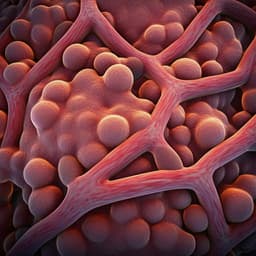
Food Science and Technology
New challenges for efficient usage of *Sargassum fusiforme* for ruminant production
Y. Y. Choi, S. J. Lee, et al.
Discover how *Sargassum fusiforme*, a brown algae, can revolutionize ruminant diets! This research by You Young Choi and colleagues from Gyeongsang National University reveals the algae's potential to enhance nutrient absorption while reducing harmful emissions. Don't miss the chance to learn about this sustainable feed option!
Related Publications
Explore these studies to deepen your understanding of the subject.







